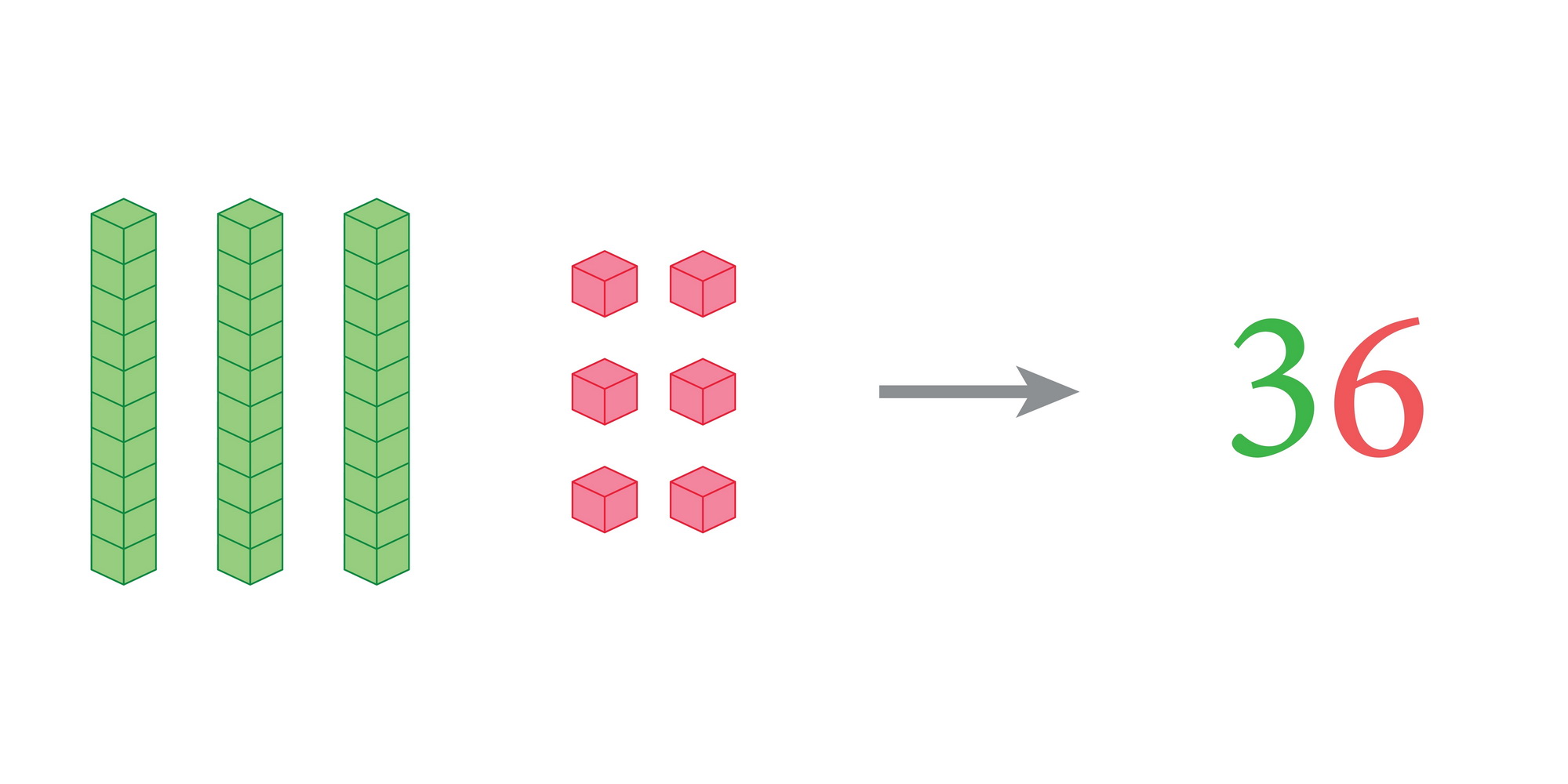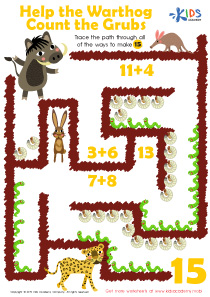Number Recognition Normal Subtraction Worksheets for Ages 3-8
4 filtered results
-
From - To
Discover our engaging Number Recognition Normal Subtraction Worksheets designed specifically for children aged 3-8. These worksheets provide a fun and interactive way to enhance your child's mathematical skills while focusing on number recognition and basic subtraction. Our user-friendly exercises promote critical thinking, boost confidence, and foster a love for learning math. Each worksheet is designed to be age-appropriate, featuring colorful illustrations and straightforward instructions to support young learners. Perfect for home or classroom use, these resources will help your child master essential math concepts while enjoying the learning process. Start your child's mathematical journey today with our dynamic worksheets!
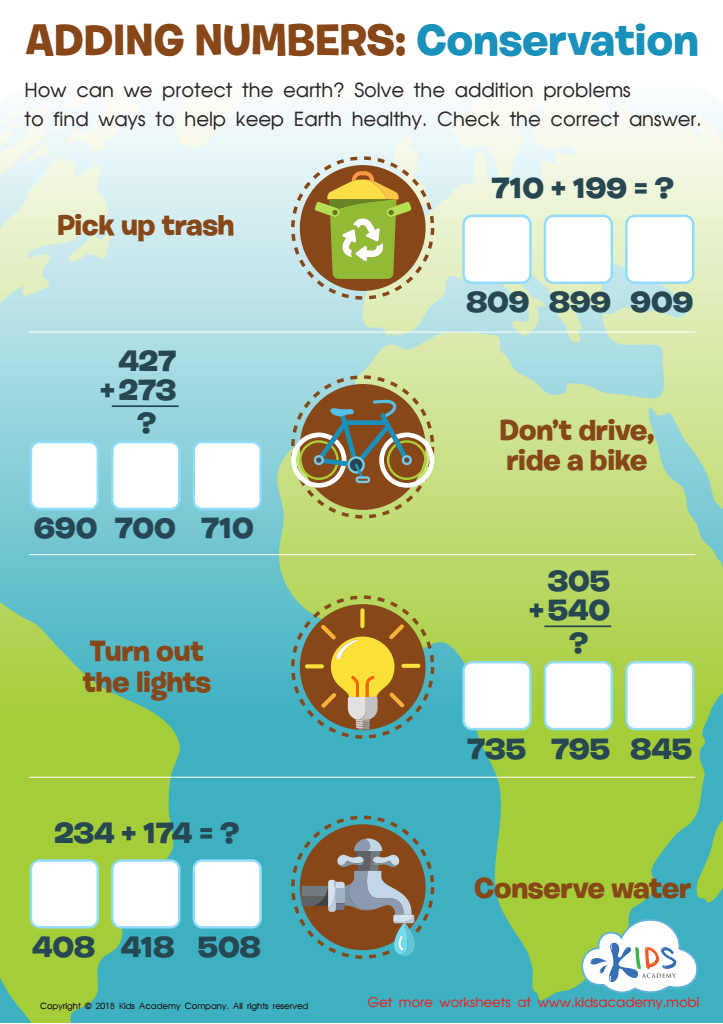

Adding Numbers: Conservation Worksheet
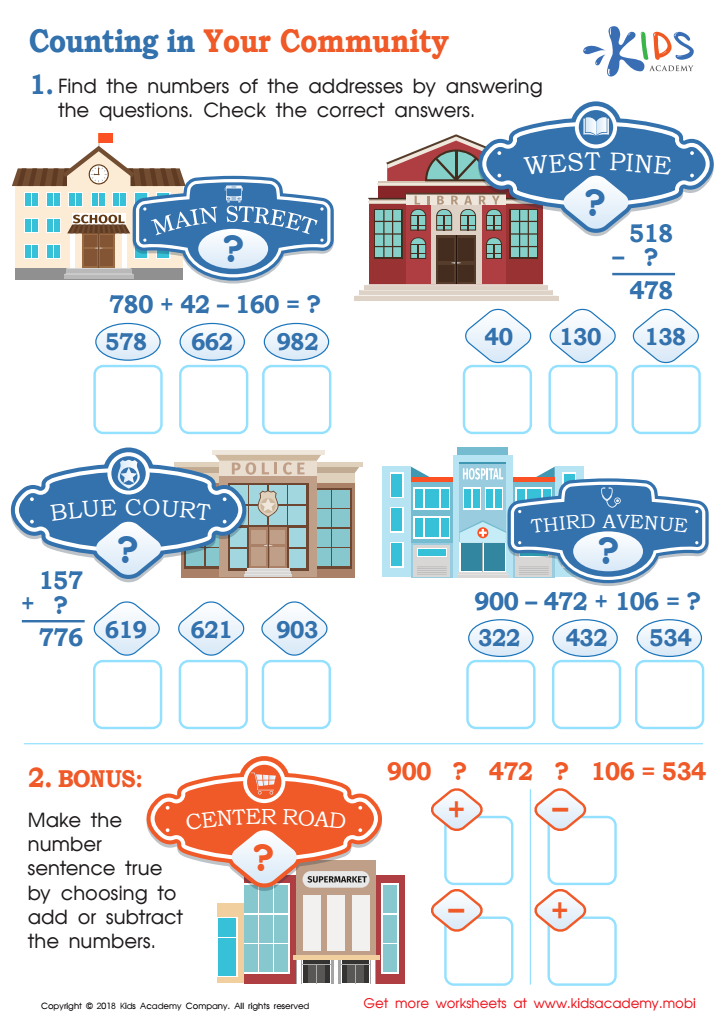

Counting in Your Community Worksheet
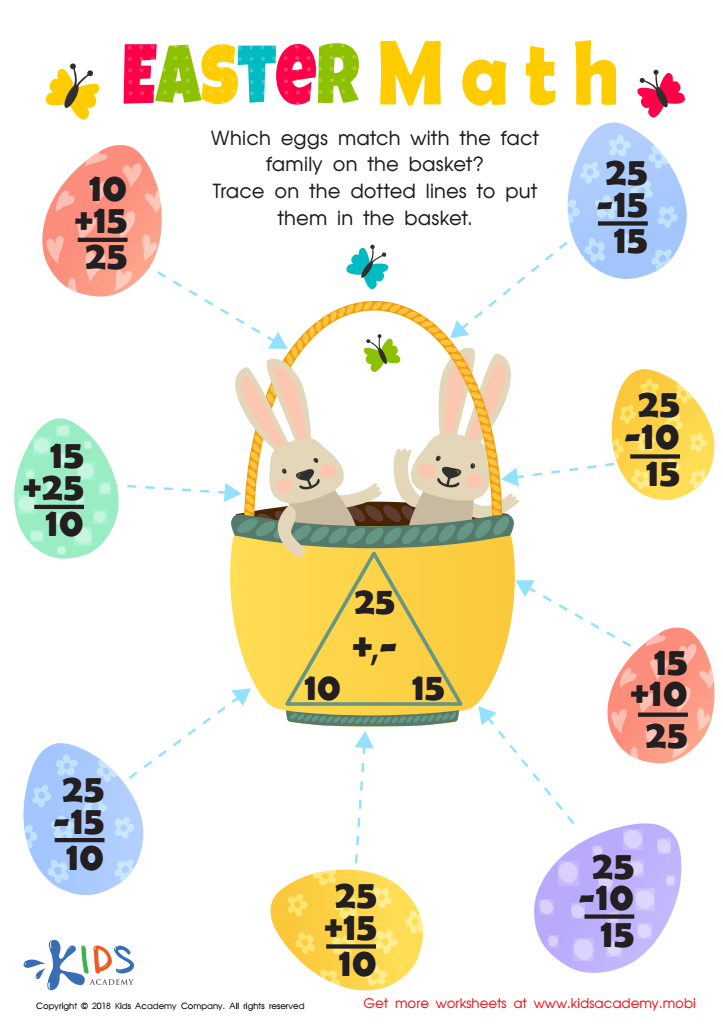

Fact Families: Easter Math Worksheet
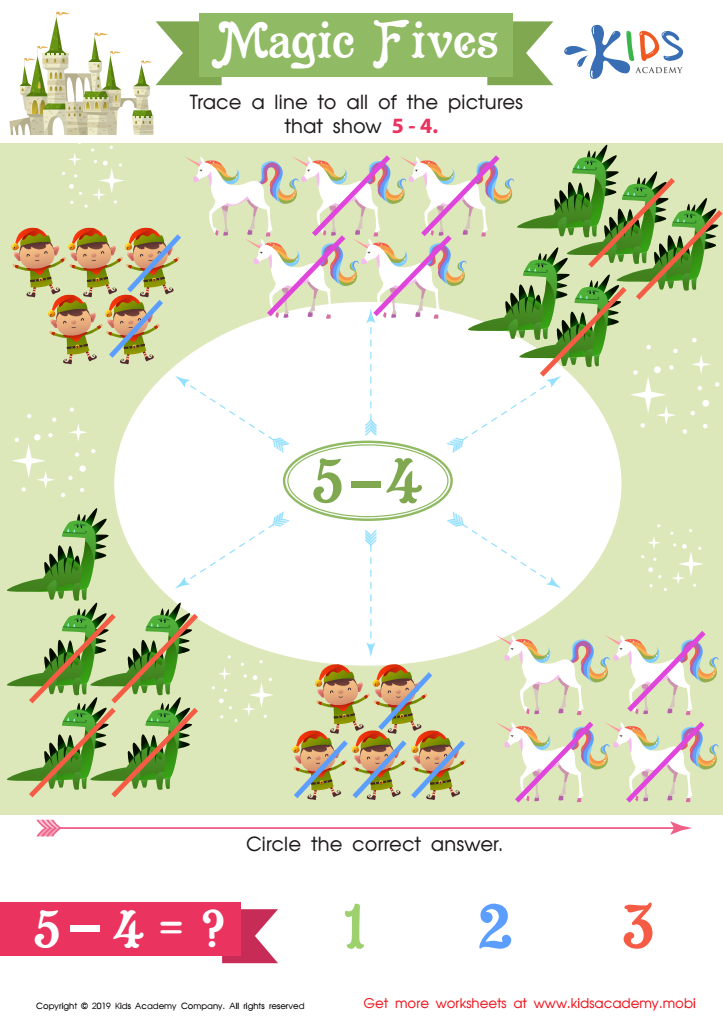

Magic Fives Worksheet
Number recognition and basic arithmetic skills, such as subtraction, are foundational elements of early mathematics education for children aged 3-8. Parents and teachers should prioritize these skills for several compelling reasons.
Firstly, number recognition serves as the building block for all future mathematical learning. Recognizing numbers allows children to decode math problems and engage with everyday contexts that involve counting, measuring, and basic calculations. Early mastery of these skills fosters confidence and a positive attitude toward math, helping to curb math anxiety in later years.
Furthermore, normal subtraction plays a crucial role in developing problem-solving abilities. Understanding subtraction, along with other fundamental operations, helps children grasp concepts like "taking away," which they can relate to real-life scenarios, like sharing snacks or playing games.
Moreover, early emphasis on these skills supports cognitive development, enhancing children’s critical thinking, memory, and spatial reasoning. Engaging parents and teachers in this process creates a supportive learning environment that reinforces these critical concepts.
In summary, focusing on number recognition and normal subtraction lays a strong mathematical foundation, instilling in children the skills they need for academic success and everyday life. Prioritizing these skills nurtures a lifelong love for learning and mathematics.

 Assign to My Students
Assign to My Students




